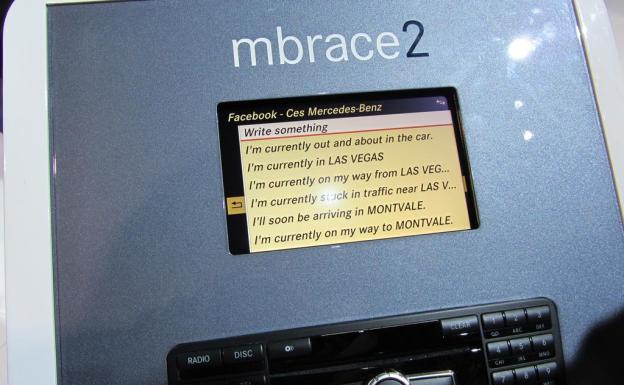
Announced during the Consumer Electronics Show this week, the new version of Mbrace developed by Mercedes-Benz will support several new Web applications including Facebook profiles, Google search and Street View, Morningstar Finance, Panoramio and popular review site Yelp. Many of the applications tie into the car’s navigation system and update the car’s route when redirecting to a nearby Facebook friend or a well-reviewed restaurant. The display for the various Mbrace2 applications is to the right of the steering wheel and can be operated through the dials on the radio or a moving knob that’s located near the shifter.

Mercedes-Benz has the ability to roll out improvements to the applications through a 3G service and doesn’t require the car owner to make a visit to a dealership to upgrade apps. Mbrace2 also includes geofencing technology which issues a text messages and emails to the owner of a Mercedes-Benz when the vehicle leaves a predetermined location. The notifications also include GPS tracking of the car’s current journey. Ideal for keeping inexperienced teenage drivers isolated to a specific area, it could also be helpful to police in regards to quick alerts when a vehicle is stolen.


